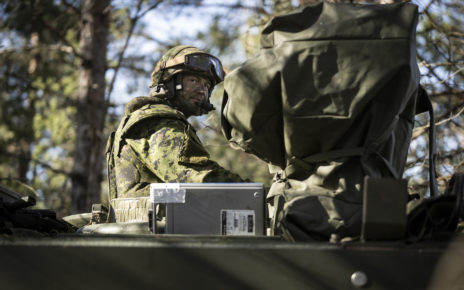Justin Trudeau’s visit to Japan has sparked worldwide attention, spanning from his multifaceted striped socks, to his romantic getaway with his wife. At some point during this process, Trudeau also had the time to meet with Japanese Royalty, top Japanese officials, auto-manufacturing giants, G7 meetings, and all at once sweep the attention of the world.
Trudeau and his wife met with the Japanese Emperor Akihito, and Empress Michiko. On the same day Trudeau was able to meet with the Prime Minister, Shinzo Abe, to discuss the South China Sea dispute and foreign investment to promote global economy. During their meeting, Abe urged Trudeau to gain support in the parliament for expanding Canadian Liquefied Natural Gas (LNG) exports to Japan. This is a mutually-beneficial opportunity since Canada has the chance to once again regain its valuable ranking as Japan’s top trading partner, while Japan’s growing demand for LNG makes it the single largest importer of LNG.
In an attempt to honour the unratified Trans-Pacific Partnership, both nations discussed trade and foreign investment as an opportunity to boost each other’s economies. Upon arrival in Japan, Trudeau set his sights on the Japanese automobile manufacturers. As one of his economic strategies, Trudeau invited Honda, Toyota and Subaru to invest more in Canada. The CEO of Subaru has responded positively, but without promises about the near future. This Japanese expansion will not only bring in capital and economic growth, but also employment for Canadians that in turn will invite more spending by Canadian consumers, stimulating the economy.
As Japan’s primary concern, Abe also focused on Japan’s regional security and the need for Canadian support in the South China Sea to create a unified opposition to China’s commanding expansion in the region. With the use of military, in the form of their navy, and ever increasing construction of artificial islands, China has severely pressured Japan and surrounding Southeast Asian nations. In response, Canadian Foreign Affairs Minister Stéphane Dion met with the Japanese to confirm Canada’s determined support in maintaining legal-based order in international maritime law. However, this is a major conflict of interest for Canadians due to Canada’s economic attachment with China and might lead to a weakened position in supporting the Japanese during the dispute.
This dilemma might leave Trudeau with a few difficult decisions. Choosing between what is considered right in terms of, maritime law or economic success in Canada. By prioritizing the Canadian economy, Trudeau will need to choose between a successful economic partnership with either Japan or China. In this case, being Canada’s second largest trading partner after the U.S., China will most likely be the better scenario for Canada, if compared to the scenario where Canada replaces China’s trade with Japan’s, although the Japanese do not trail behind far if they were to uphold their farsighted promises on investing in Canada. It is easy to see how China’s current economic involvement with Canada would be favoured, rather than a potential opportunity with Japan, from an economic standpoint. It would also continue the Canadian-Chinese Relations that were first initiated by his very own father, Pierre Elliott Trudeau, in 1970.
If Trudeau prioritizes maritime law, Japan has the upperhand over China in the eyes of the international law due to several factors. First, Japan does not have any claims in the South China Sea, therefore it does not have a direct interest in battling China legally for the area itself. Nonetheless, Japan has stood against China’s actions because China’s presence in the region restricts the flow of exports and imports, primarily LNG. Secondly, China’s military presence in the region has maintained control for a long period of time, and due to its ignoring of the UN Convention on the Laws of the Sea (UNCLOS), China has degraded its diplomatic and legal standing in terms of this Convention.
Moreover, China’s military actions have posed a direct hazard to its neighbouring states, which the U.S. and ASEAN nations find severely threatening. Admiral Wu Shengli has previously indicated that if the U.S. did not end its provocative acts, there might be a minor incident of war in the South China Sea. These threats have deteriorated China’s credibility in this dispute by diplomatic measures, giving Japan the upper hand in accordance with diplomatic and legal circumstances. Combining economic, diplomatic and legal consequences of each decision, Canada’s best decision is to support Japan in this dispute. In doing so, Canada confirms its value for international rule of law, and provides support to a wider range of nations including the U.S., Japan and ASEAN nations. The support may also re-enhance Japanese-Canadian relations, among other relationships. This reconnection with Japan could play a significant part in establishing Japan’s investment into Canada. Therefore, there would be minimal economic impairments, if any at all.
Prime Minister Justin Trudeau holds a press conference at the National Press Theatre. Picture courtesy of Prime Minister Justin Trudeau’s youtube page.
Disclaimer: Any views or opinions expressed in articles are solely those of the authors and do not necessarily represent the views of the NATO Association of Canada.




